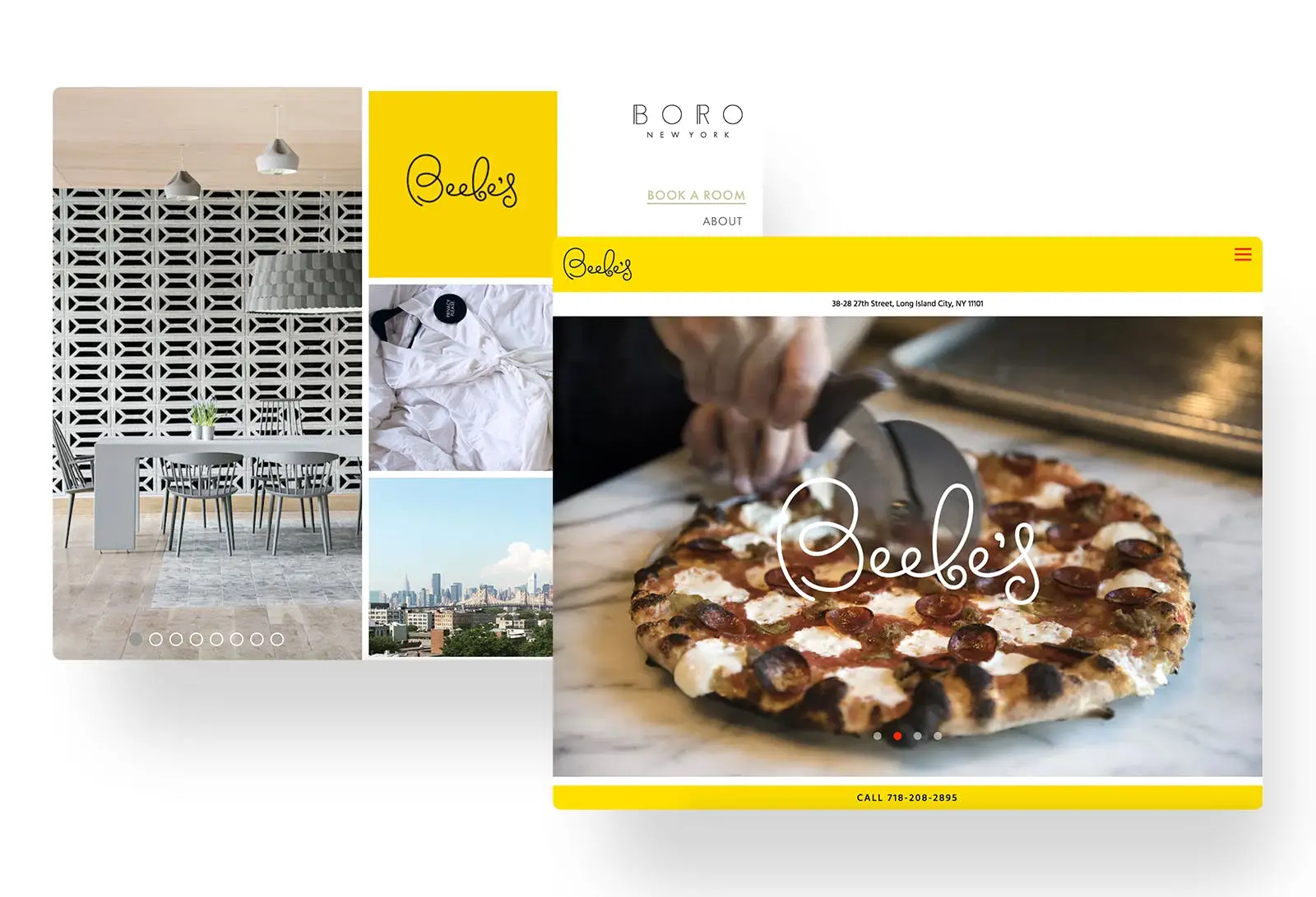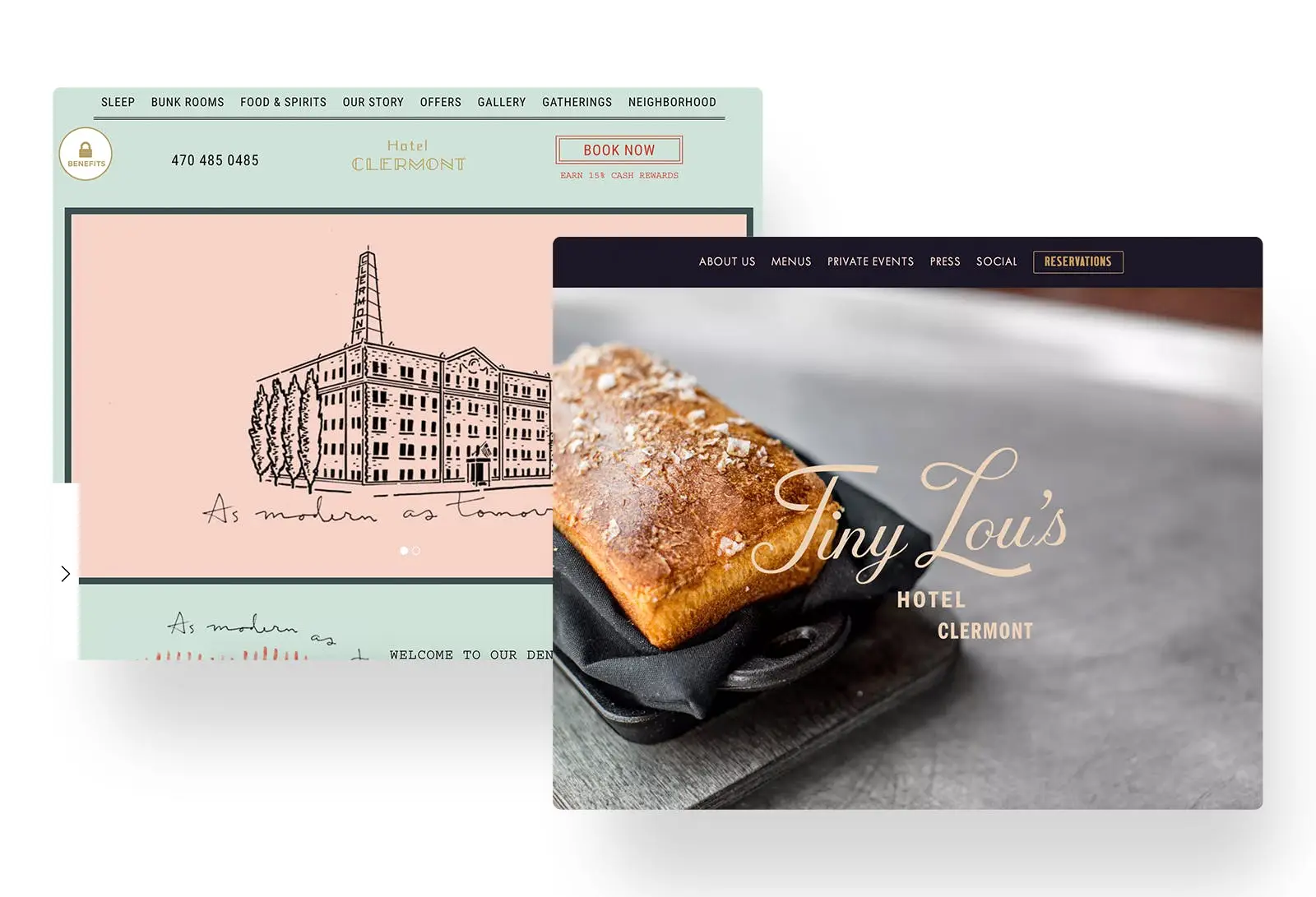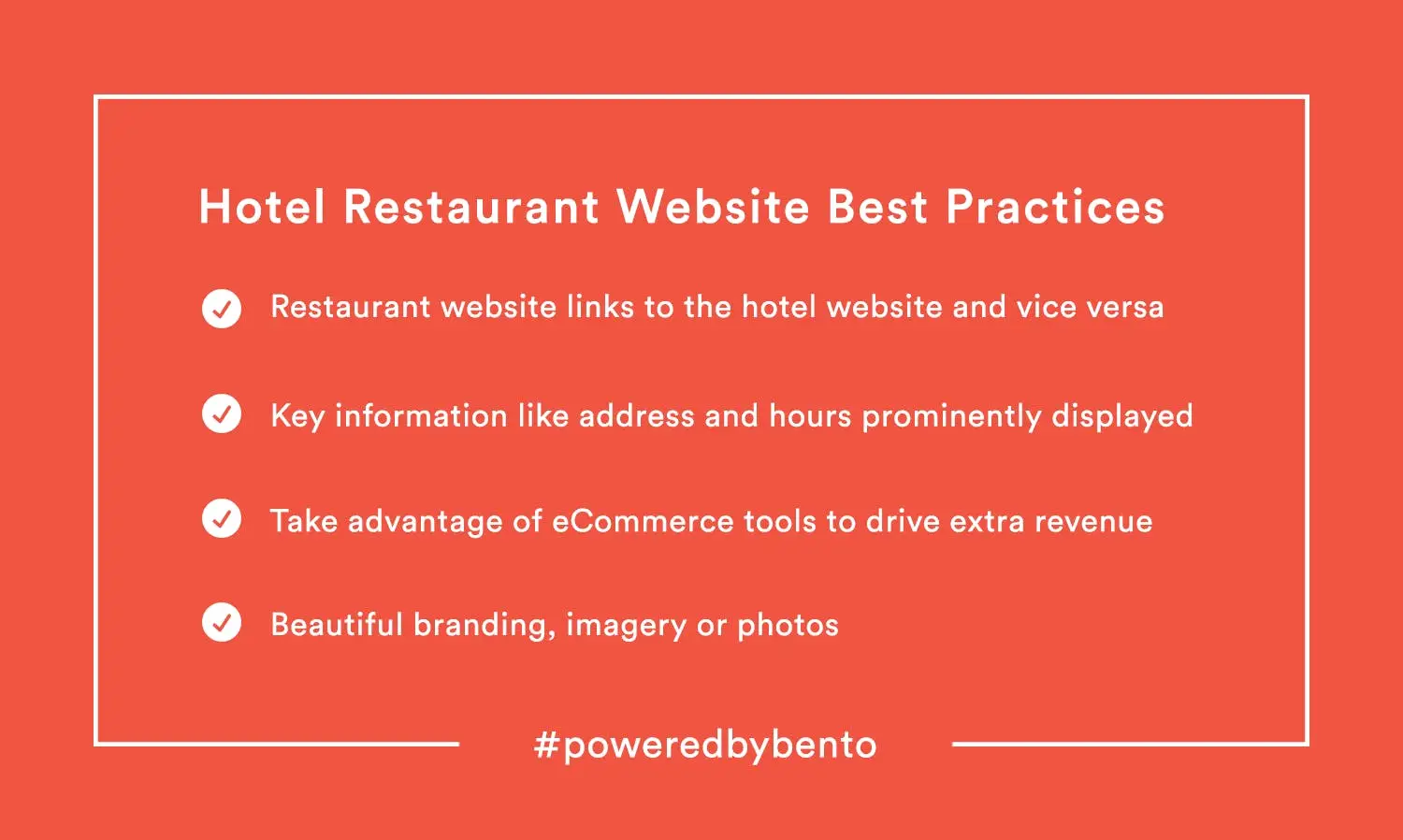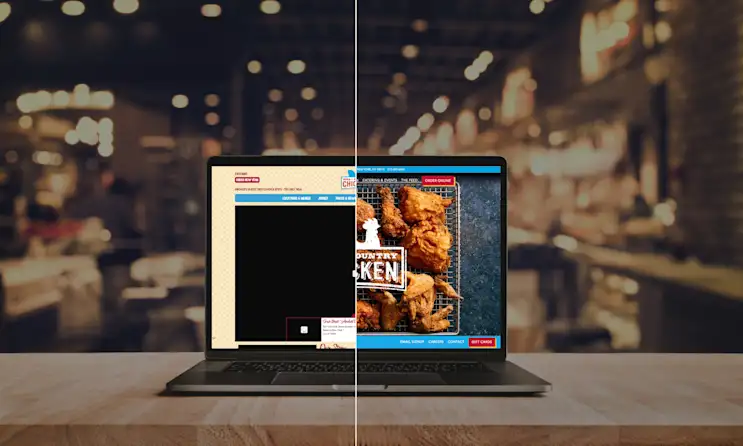Opinion
Why Your Hotel Restaurant Needs Its Own Website
April 2, 2019
Tiny Lou’s and Beebe’s on why hotel restaurants should have their own website
Hotel restaurants are an integral part of the property they’re located in, but many stand out as distinct experiences in their own right. Of course, hotel restaurants attract people staying in the hotel, but they can also draw locals and other non-hotel guests, gaining critical acclaim and driving revenue.
According to hotelmanagement.net, food and beverage spending at hotel restaurants has seen consistent 5.5% annual growth since 2011. High profile operators like Union Square Hospitality Group and Major Food Group have capitalized on this opportunity, opening hotel restaurants of their own, including Marta in The Redbury, and Dirty French in The Ludlow in New York. These restaurants are far more than just an amenity of the hotel—they’re individual operations with their own unique needs.
For those reasons and more, it’s essential for hotel restaurants to maintain their own distinct online presence, separate from the hotel they’re located in. We spoke with Tiny Lou’s at Hotel Clermont in Atlanta, and Beebe’s at Boro Hotel in New York about the benefits they’ve seen from having a standalone website for their restaurants.
Brand Recognition
Both Tiny Lou’s and Beebe’s have markedly different brand identities than the hotels they are a part of. Beebe’s sees this differentiation as an advantage should they ever want to expand into other locations. Their loopy logo and playful interior design stand apart from the Scandinavian-inspired Boro Hotel. By having its own website, Beebe’s is able to convey that cheery and welcoming spirit to an array of potential customers, regardless of whether or not they’re guests at the hotel. Rather than getting lost as a tab on Boro Hotel’s website, Beebe’s defines itself as a warm and comforting trattoria with traditional New York pizza, negronis on tap and more. No matter where Beebe’s operates, customers will know what to expect, thanks to the strong brand identity they’ve fostered in-house and on their website.

(Left) Boro Hotel Website, (Right) Beebe's Website
Additional Revenue Sources
A restaurant website with eCommerce options is a huge revenue source for the restaurant. Both Tiny Lou’s and Beebe's sell gift cards and offer private event bookings on their website to get even more guests in the door and turn locals into recurring customers. By having its own website, Beebe’s is able to offer online ordering to all, so even non-hotel guests can enjoy a pizza from the comfort of their own home. By operating Beebe’s and Tiny Lou’s as independent restaurants that happen to be inside hotels, their operators are able to take full advantage of all the revenue-driving features of a standalone restaurant and not be limited to only serving hotel guests.

(Left) Hotel Clermont Website, (Right) Tiny Lou's Website
Make Things Easy for Your Guests
At Tiny Lou’s, the operators believe that the ultimate goal of the restaurant website is to make things seamless for hotel guests. With a few clicks, guests can make a reservation, sign up for the Tiny Lou’s email list and easily navigate back to Hotel Clermont’s website. “We don't ever want to be in a relationship where things are divided and hard lines are drawn throughout the property. [We] work together in the pursuit of a better experience for everyone,” says Nick Hassiotis, Director of Food & Beverage at Hotel Clermont.

Ultimately, the hotel website and the hotel restaurant website should complement one another and help to bolster the two businesses. Both should be an extension of the hospitality you show to guests, online and off.
Recommended

Design Inspiration
Restaurant Website Inspiration for 2019
January 7, 2019
A before & after look at some of our favorite restaurant website redesigns

Commerce
A Restaurant's Guide to Branded Merchandise
November 9, 2018
What you need to know about selling branded merch for your restaurant

Staffing
Why Restaurants Must Evolve as Employers
September 16, 2021
Enhanced unemployment benefits were not the only reason for the labor shortage. As worker priorities change, the restaurant workplace needs to change with them.

